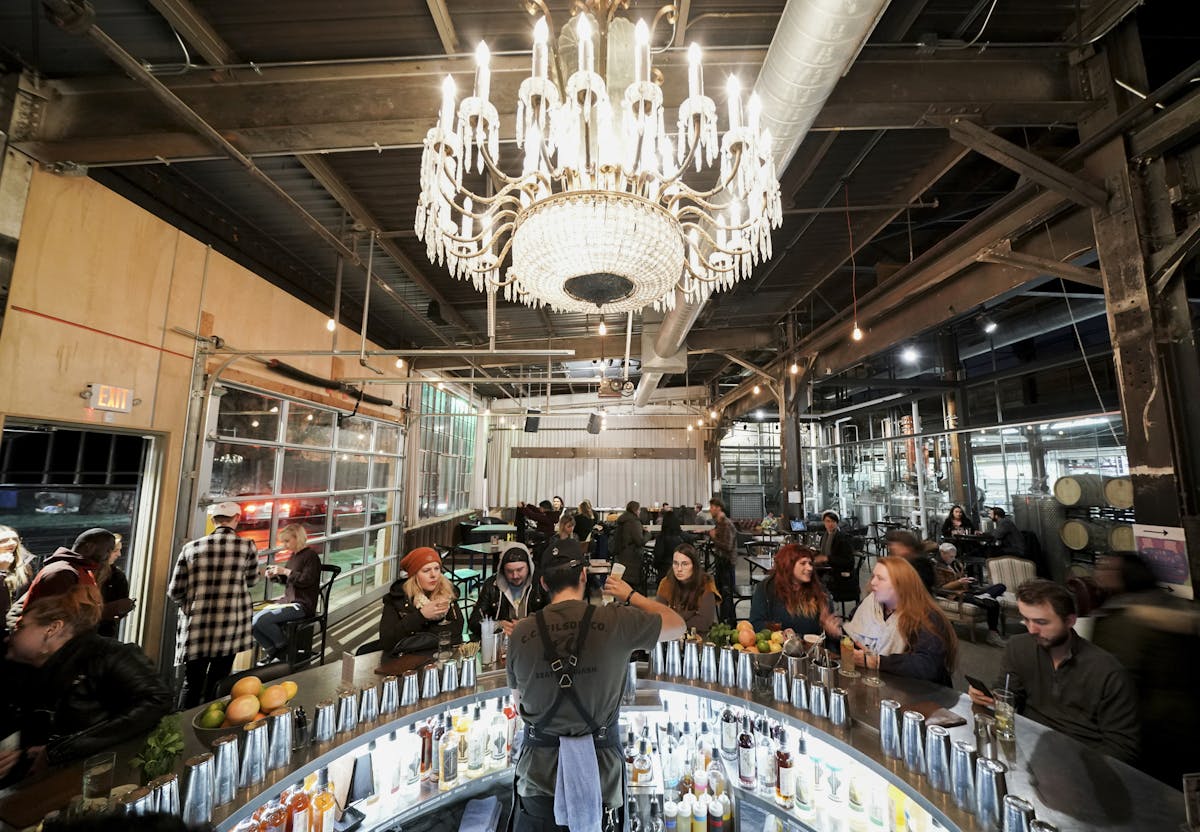Minnesota's supply of 3.2% beer is drying up.
Two major beer producers, Heineken USA and Constellation Brands, recently bowed out of the 3.2 market. Their exits will only affect Minnesotans, of course, as the state is the last in the nation to restrict neighborhood supermarkets and convenience stores to selling only the weak brew.
A Republican state senator wants to change that. In an interview Tuesday, Sen. Karin Housley, R-St. Mary's Point, called on lawmakers to support her bill that would let grocery and convenience stores sell full-strength beer and wine.
"Brewers have decided that it's not profitable for them to sell it here so they're pulling it off the shelves," Housley said. "I think it's time for government to get out of the way and let grocery stores and convenience stores have an opportunity like everyone else."
For years, 3.2 beer was the only option for Minnesotans who wanted to buy a six-pack on Sundays. But lawmakers ended the more than century-old ban on Sunday liquor sales in 2017, giving Minnesotans 11 a.m.-6 p.m. access to local liquor stores.
The resulting system has left state grocery and convenience stores "severely disadvantaged," Constellation Brands senior vice president John P. Utter wrote in a Nov. 26 letter to the Minnesota Grocers Association. He cited a decrease in nationwide demand for 3.2 beer as he explained the company's decision to halt production. Less than 14 months ago, five states had laws regarding the weaker beer. Colorado, Oklahoma, Utah and Kansas have since axed the requirement.
"Unfortunately, there is just no way our breweries can efficiently produce and package at this reduced volume level," Utter wrote, urging the association to lobby the Legislature to make full-strength beer available to all retailers.
Together, Constellation Brands and Heineken USA account for an expansive portfolio. Constellation Brands includes Corona, Modelo Especial, Victoria and Pacifico beers, while Heineken USA has its namesake brand and others, including Dos Equis, Tecate and Newcastle Brown Ale.
Other major beer manufacturers, such as Anheuser-Busch and MillerCoors, have hinted they may slow production of 3.2 beer. A spokesperson for Anheuser-Busch said Wednesday the company will continue to produce a "limited quantity" of 3.2 beer for Minnesotans. Representatives for MillerCoors did not respond to a request for comment.
Minnesota's largest brewery, August Schell Brewing Co., is the only producer that has explicitly committed to the 3.2 market.
Previous legislative efforts to ditch 3.2 beer in Minnesota have failed without so much as a committee hearing. Powerful lobbying groups like the Minnesota Licensed Beverage Association (MLBA) and the Minnesota Beer Wholesalers Association oppose the "alcohol everywhere" measure.
The groups argue that allowing off-sale beer and wine in grocery and convenience stores could give minors easier access to alcohol and result in revenue loss for independent liquor stores.
"There is no evidence consumers are having difficulty obtaining alcohol," the MLBA wrote in its 2019 legislative priority fact sheet.
Housley said her bill will be heard in the Republican-led Senate Commerce Committee when the Legislature reconvenes in February. Now that Minnesota is the last state with such a law on the books, Housley said there will be more urgency to change it.
It is not clear if the Democratic House will take up the measure. Rep. Laurie Halverson, an Eagan Democrat who chairs the House Commerce Committee, previously said she opposed sweeping changes.
Ryan Faircloth • 612-673-4234

Baseball Metro Player of the Year packs up his five tools and leaves

Prep baseball 2024: 35 Minnesota stars who the recruiters covet
Police searching for St. Paul home intruder who raped, robbed woman

Friend heard money, relationship woes from man tied to Chanhassen killing who took his own life

